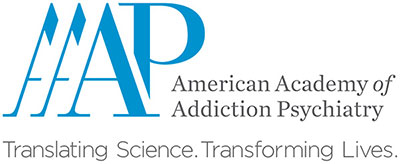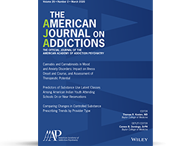Preventing Substance Use Among Young Adults with Disabilities
SAMHSA has issued a new Advisory on Preventing Substance Use Among Young Adults with Disabilities. In 2021, approximately 3.2 million or about 6.8 percent of people between the ages of 14 and 24 were living with a physical or mental disability.
People between the ages of 18 and 25 are vulnerable to behavioral health conditions because they are entering a developmental period characterized by numerous transitions and significant changes. This population may be leaving home to pursue further education or employment while continuing to develop socially, emotionally, and physically. These changes, in combination with increases in independence and self-focus, can put young adults at higher risk for initiating or increasing alcohol and other substance use, which may result in future substance misuse or the development of a substance use disorder.
This Advisory highlights the need for primary substance use prevention efforts for young adults ages 18 to 25 with disabilities, describes factors that may affect the delivery of prevention services, and provides guidance on designing and tailoring programs to meet the needs of this population.
The Advisory does not aim to provide comprehensive information about how to address the needs of every type of disability. Rather, it aims to encourage substance use prevention staff to consider the unique needs and perspectives that young adults with disabilities may bring to their programs.
Population-Focused Suicide Prevention Resource Guides Developed from SAMHSA-funded CoEs
SAMHSA/OBHE recently hosted a well-attended technical expert panel on Embedding Equity in Suicide Prevention and Building the Suicide Prevention Workforce in Underserved Communities. As a result, several of the CoE programs developed and presented on population-specific suicide prevention resource guides.
Please find below several resources that you can share from the following: African American Behavioral Health CoE, Hispanic/Latino CoE, LGBTQ+ CoE, E4: Older Adult CoE, and the Asian American Native Hawaiian Pacific Islander ‘Ohana CoE.
The Center of Excellence on LGBTQ+ Behavioral Health Equity
Equity Focused Suicide Prevention, Intervention, and Postvention Resources for LGBTQ+ Populations
The Hispanic/Latino Behavioral Health Center of Excellence
The African American Behavioral Health Center of Excellence
E4 Center of Excellence for Behavioral Health Disparities in Aging
Equity Focused Suicide Prevention Resources for Older Adults



